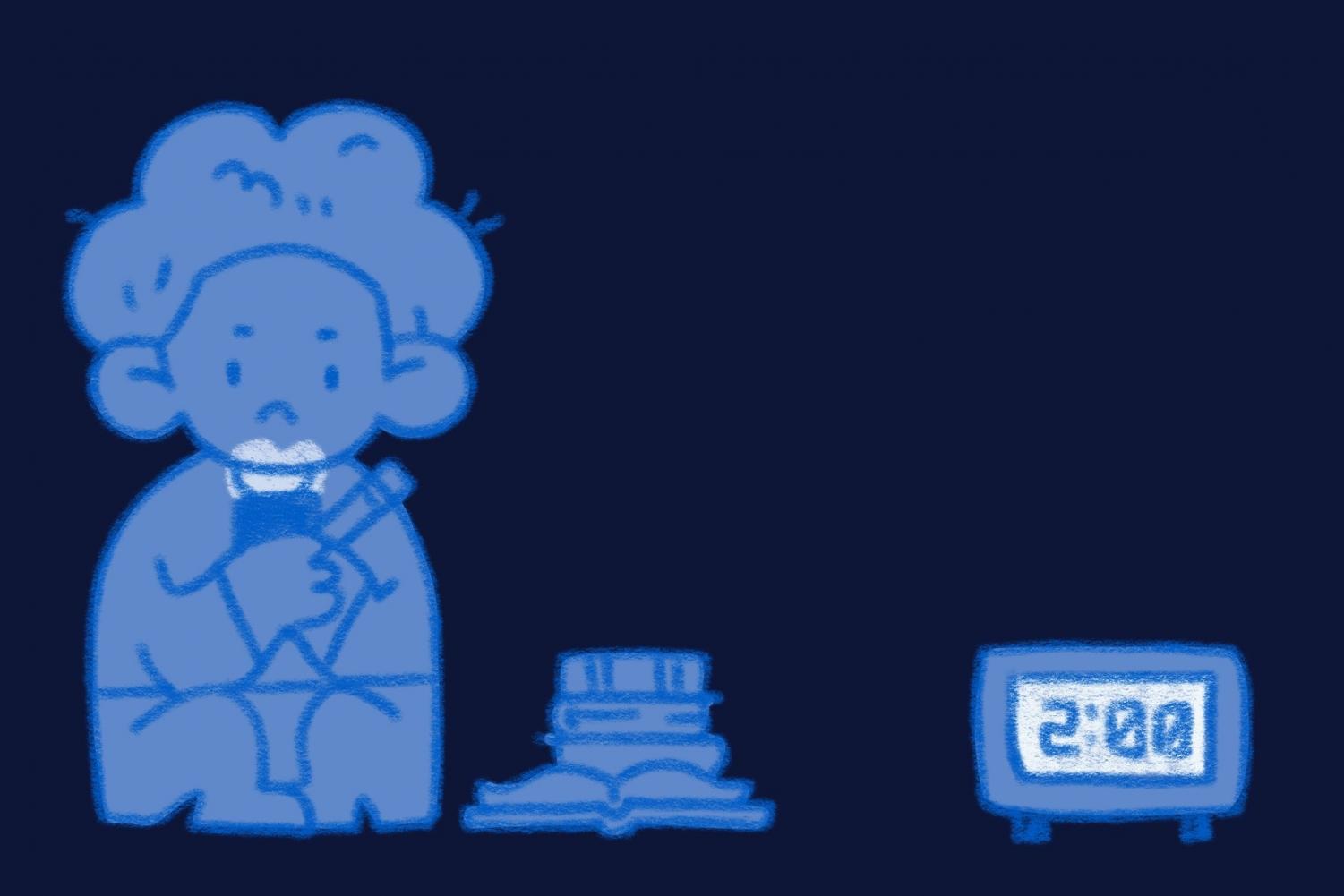OPINION | Summing it up: Tulane math has work to do
February 17, 2021

Tulane University is a school that values the sciences, without question. With roughly as many students belonging to the School of Science and Engineering as any of the other undergraduate schools, the interests of this branch of academic inquiry should hold a significant stake in the university’s resources and standards of excellence.
Yet, the SSE has an infamous issue regarding the quality of education in the mathematics department.
Prior to this discussion, it is important to understand that this issue is neither insular nor totally generalizable. On the one hand, the problem is not with the whole department; there are many professors who arrive to class with a clear plan on what they will teach for the day, how they will teach it and how they will resolve potential confusion. At the same time, the problem is also not a handful of bad teachers who neglect to follow these good practices. Repeated patterns exist among math students and professors that place enormous weight on the individual learner and their independent ability, rather than the classroom as a functional unit.
Essentially, the problem is a culture, built implicitly into most classes in the department. Its biggest flaw is its devotion to self-reliance: the idea that students should not be leaving class with a comprehensive understanding of the material, but that they should leave knowing only which chapter in the textbook that they must devote yet more hours to when they get home.
Tulane math professors are brilliant, but they are not always brilliant teachers. They do not always possess the tools to relay those bottomless pools of information to their students. And they do not always seem to care about whether or not their students are absorbing the information.
Mark Lisi, a senior mathematics major, says it best. “I would say success is achievable in all of the math classes I’ve taken,” he said. “But I personally don’t use the professors as resources very much –– a lot of textbook reading and independent research.” Math classes certainly are not impossible, but they place a heavy burden on the student to be the sole master of their own learning, rather than the teacher to be a facilitator of their students’ understanding.
The problems do not stop there. Lisi also said that the department is guilty of “wildly inconsistent grading practices.” Sophomore Claire Borges points to the fact that transitions between classes can also be jolting due to lack of standardization between professors, more specifically the move “from calculus to Linear Algebra/Real Analysis … feels like a bait-and-switch.”
Alumnus Sam Vancini, who graduated in 2019, concurs that the department had issues back when he was enrolled as a math major at Tulane. “Both of the departments I’ve been a part of have been largely male-dominated.” Junior mathematics major Emily Gilbert continues the thought with an alarming realization. “I will ostensibly finish a degree here without ever having a female professor in my major.” Her challenge to the department as they conduct their current search for new faculty: “I want to see them hire only female professors.”
Still, as previously stated, the problems are not all-encompassing. Vancini describes his overall experience as “mostly positive.” Borges praises the addition of supplemental instructor sessions to early calculus courses. Both speak to the usefulness of professor Michael Joyce, whom Vancini reminisces as one-half of a “really good partnership,” and Borges calls an “absolute gem.”
These high points should be celebrated. The department is not a large one, but it has a significant impact on the whole student body. While math major counts might be low, many undergraduate students tap into the department’s course codes for their non-math major requirements or general proficiency credits. The major and minor are both easily and applicably paired with other paths of study, from computer science to economics. Therefore, these questions of education quality should not be taken lightly when raised. They have far reaching impacts.
Professor Kalina Mincheva writes on her Linear Algebra syllabus the following statement on “Class Climate, Philosophy and Inclusiveness”:
“Math is hard for everyone, even for math majors and professors … Moreover, historically women, people of color, the working class, people with disabilities, and queer people have been excluded from the academy and are underrepresented in math and other sciences. I hope that together we will build a space where everyone feels that their mathematical journey is supported. It is my intent that each of my students feels they belong, both in my class and in the broader mathematics community … If you feel there are ways in which I can better improve the effectiveness of this course for you or others, feedback (anonymous or otherwise) is both encouraged and appreciated.”
Mincheva, having only arrived at Tulane last year, has here offered a model of progress for the entire department to follow. It is based on understanding and emphasizes teacher performance. At the same time, it does not alleviate the student of their duty to work hard. It encourages curiosity, openness and the opportunity for change in both the student and professor.
There is no perfect department at Tulane. There will always be good teachers and mediocre teachers, and the judgement of which is which will always be subjective. However, students should demand a certain standard be met. Do they feel comfortable asking questions? Do professors actively engage and entertain their class’ doubts? If the answer to either of these questions is “no,” one can probably find better lectures on YouTube. The department should strive to outperform at least that.






















Leave a Comment